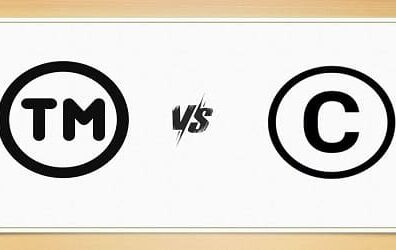Disadvantages Of Registering A Company- 6 Reasons

Introduction
While registering a company brings many benefits, it’s also important to consider the potential downsides. This article explores the disadvantages associated of registering a company and the factors entrepreneurs should weigh before making this significant decision.
Disadvantages of Registering a Company
While incorporating a company, one should definitely consider the following disadvantages of registering a company
- Formality and Expenses: For registration of a company a number of statutory requirements are required to be complied. The costs of registering a company include government fees, legal fees, and continuing compliance expenditures. A company’s affairs and operations must be performed strictly in line with the appropriate legal provisions, failure to which results in a penalty. Companies are required to follow certain corporate governance regulations, such as conducting regular board meetings, keeping minutes, and sticking to specific protocols. These standards can take time and may not be essential for small enterprises. Other types of business organization are exempt from several legal requirements and formalities.
- Loss of Privacy and Excess Reporting: Another downside of incorporating a company is the loss of privacy. The Registrar of Companies requires various returns, resolutions, and documents be uploaded and filed with it. The companies are required to intimate the Registrar of Companies office regarding various changes and are also required to file mandatory documents like annual return, financial statements among others. The Registrar of Companies office is a public office that allows inspection of any document submitted by a company with the Registrar upon payment of prescribed fees. For individuals who wish to keep their company information private, increased transparency may be a drawback.
- Diversified Control and Slow Decision Making: Members of the company do not have as much effective control over the company’s operations as they do in sole proprietorship and partnership business forms. Normally, the company’s shareholders are in large numbers, and it works through the shareholders’ representatives, known as Directors/KMPs. A company’s decision making require a formal process which included holding a board of directors or shareholders meeting. This might slow down the decision-making process and make the company less flexible when compared to unregistered or smaller enterprises. When a company invites outside investors, the original promoter’s shareholding and control is diluted. This can lead to disagreements about decision-making and business strategy.
- Legal Responsibility and Public Accountability: The company cannot operate in contravention to the public interest because regulatory authorities will intervene if the public interest is in conflict with the corporate operations. Company directors and executives are legally bound to act in the best interests of the corporation and its shareholders. Failure to carry out these responsibilities might result in personal liability, which can be a disadvantage for business owners who desire to avoid personal risk.
- Possibilities of Fraud: The company operates by concentrating economic resources in a few hands; there is a risk that other people who have contributed funds to the company, whether as shareholders, debenture holders, creditors, or lenders, will be defrauded by diverting funds from the company to their personal accounts. The damage may already be done by the time regulatory authorities become aware of it. Employees or trusted individuals may misuse corporate finances or assets for personal gain, such as unlawful transfers, fake expenses, or actual asset theft. Unauthorized access to sensitive company data or consumer information, potentially resulting in financial losses or reputational harm.
- Higher Tax Burden: Double taxation is one of the most important tax disadvantages for businesses. In many jurisdictions, corporations are taxed on their profits at the corporate level, and shareholders are taxed again on any dividends they receive. Dividend Distribution Tax was repealed, and dividends are now taxed in the hands of shareholders according to their income tax brackets. The tax burden has moved to individual stockholders as a result of this adjustment. In certain nations, corporate tax rates are greater than individual tax rates. This means that if you run your business as a company, your profits may be taxed at a higher rate than if you ran it as a single proprietorship or partnership. Surcharges and education cess are levied on income tax liabilities on companies India.
Conclusion
While registering a company offers many advantages, it’s crucial to be aware of the potential disadvantages of registering a company. Entrepreneurs and business owners should carefully consider their business goals, resources, and risk tolerance before deciding to register a company. It’s also advisable to seek legal and financial advice to navigate the complexities of registration and operation, ensuring that the benefits outweigh the potential drawbacks. It is always important to weigh the advantages against the disadvantages of registering a company. By making an informed decision, you can better position your business for success while mitigating the disadvantages that may arise along the way.
Follow Us
Keep Yourself Updated By Following Us




